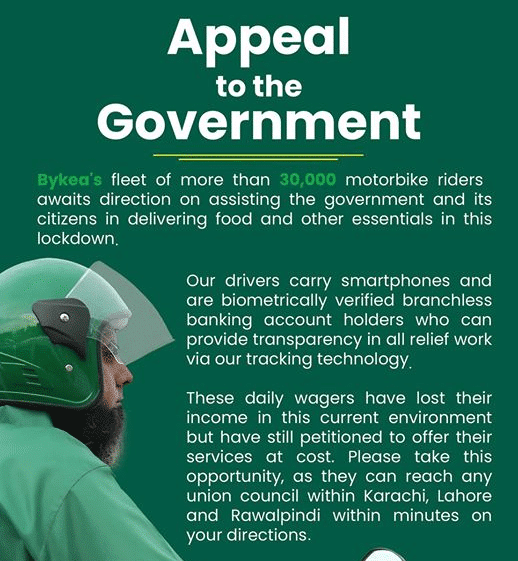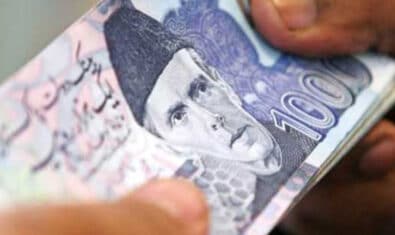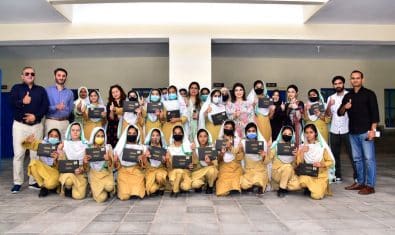The COVID-19 pandemic has hit the world at a pace, intensity, and scale that we have hardly witnessed in recent history. As the world tries to grapple with the ever-increasing spread of the deadly contagion, authorities around the world are trying to facilitate citizens in every way possible. Despite that, researchers believe that the ongoing pandemic can turn the clock back by as much as 30 years on global poverty. It is expected that around half a billion people will be pushed into privation.
Amidst all this, the poor are hit hardest by the enforced lockdown. Millions are jobless facing penury and deprivation as all economic activity grinds to a crawl.
In his attempts to help the impoverished, Prime Minister Imran Khan established the Corona Relief Tiger Force. He urged the youth to join the force and support the government in its endeavors to fight the coronavirus pandemic effectively and help the ones affected the most by the ongoing lockdown.
Answering his call for volunteers, around 739,000 youngsters have already registered themselves as volunteers for relief work as the lock progresses. As much as this initiative will help trigger the passion and valor of the youth of the country, it might not work as efficiently as the government expects.
What is wrong with the idea?
Where the Prime minister and other authorities laud the passion shown by youth, they don’t understand that handling hundreds of thousands of untrained youngsters might prove rather difficult. The relief work will require close supervision since most of it will be done in remote areas.
As Shehryar Hydri, Secretary-General at Pakistan Software Houses Association (P@SHA), puts it:
By the time the Tiger Force volunteers who have signed up become functional and fall prey to ill-planned resource allocation and massive political backlash, we would have lost the current lead that puts us ahead of the curve.
Instead of reinventing the wheel at such testing times, the government should work on allocating the already available resources towards relief work. The best way to do that is by initiating public-private collaboration for the time being.
Benefits of Public-Private Collaboration
For now, the chasm between how far we have come and how far we need to go is quite wide. Government resources alone are not enough to close the gap. Hence, the only effective way to do so is through Public-Private Partnerships (PPPs).
It will be a win-win situation for all stakeholders. The government will be able to achieve its goals, and the private companies will be able to keep their revenue afloat as the economic situation of the country struggles.
Many private companies are already volunteering to work with the government. Recently, Bykea, a Pakistani ride-hailing company, appealed to the government via The News, saying:
With this appeal, Bykea indirectly raised a point that every company specialized in its specific sector. This is not something the government can come up with in these difficult times by recruiting volunteers. Replicating an already established network just requires extra time and resources, all with reduced efficiencies.
Similarly, Muntaqa Peracha, Commercial director at Foodpanda, recently commented on the matter saying:
We have been reaching out to all provincial and federal authorities with the same idea since the day curfew was announced in Karachi. However, until now, talks haven’t converted into anything substantial. It seems like the government and powers that be, were busy in this initiative. However, to scale nationwide, one has to use data and technology. It not only gives a scale, but it also adds transparency and monitoring.
All last-mile e-commerce focused companies like us can play a huge part, and we are more than ready to assist the government in any way possible. This issue is bigger than individual companies. In the meantime, we are launching initiatives as well to help the needy. First was the relief package for our fleet of heroes, which has been announced. The next initiatives will be launched in the next couple of days and Inshallah.
The best example of PPPs in recent memory is China, from where the pandemic originated. As Wuhan, the city of 11 million people, went into lockdown, the unprepared citizens started buying food and other essential items in a state of panis, emptying supermarket shelves. Despite that, in a matter of days, supplies began to flow in the city.
The authorities ensured that supplies reached those in need. One of the factors that contributed to this was the government’s collaboration with online delivery services like Alibaba’s Cainiao network that provided delivery for online purchases within 20 minutes. The private companies were shipping medical supplies and food items across the city 24/7.
Conclusion
Of course, the whole collaboration will involve compromise on both ends. The government will have to pay the private companies, and the private companies will have to comply with working on subsidized rates. However, in a situation like this, PPPs is our best option to flatten the curve before it gets out of control. It is time for us to stand together, not to compete.























Tiger force seems more like a publicity stunt. Half a million force will be a white elephant.